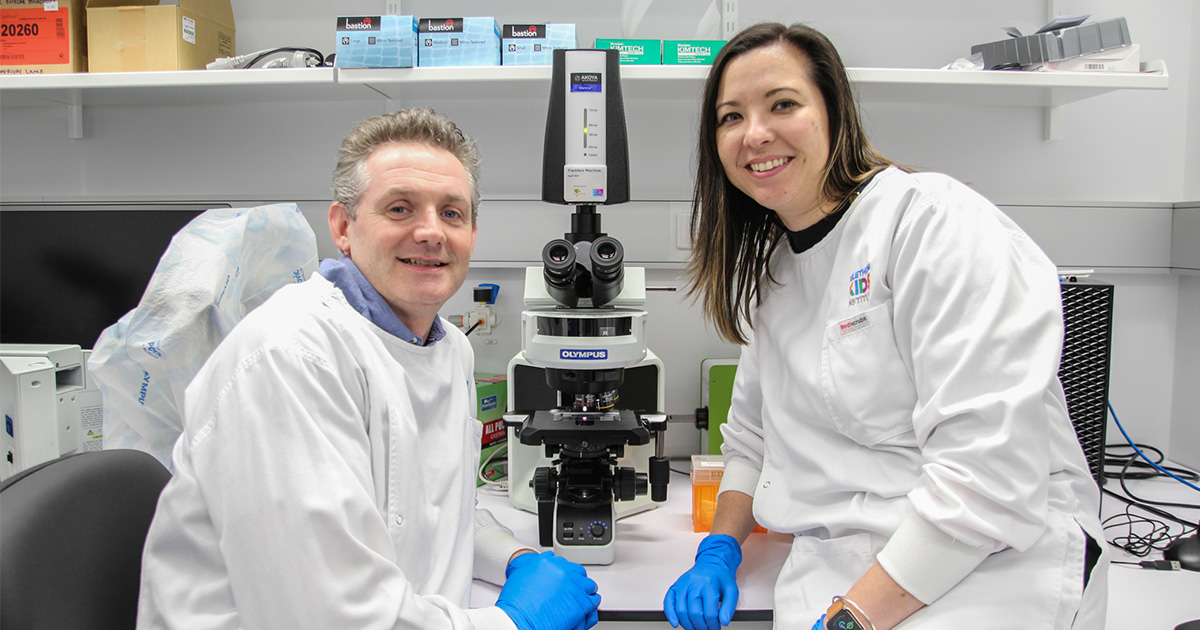Search
Research
Cross-presentation of cutaneous melanoma antigen by migratory XCR1+CD103− and XCR1+CD103+ dendritic cellsThis report provides new insight into the functional specialization within the broad network of dendritic cells that are responsible for skin immunosurveillance
Research
Pediatric Brain Tumors: Innovative Genomic Information Is Transforming the Diagnostic and Clinical Landscape.This article summarizes data from collaborative group and institutional trials that have advanced the science of pediatric brain tumors.
Research
The Immune Response to Skin Trauma Is Dependent on the Etiology of Injury in a Mouse Model of Burn and Excision.This article investigates the impact of burn & excisional injury on the immune system.

News & Events
Finding new treatments for rare brain cancers in infantsThe WA Kids Cancer Centre has secured $1.1 million in funding from the Medical Research Future Fund’s (MRFF) Paediatric Brain Cancer Research Stream 2 to develop more effective and less toxic treatments for rare brain cancers in infants.
News & Events
Adventurers deliver on a promise to help kids with cancerA state of the art 3D molecular imager that will help researchers monitor how brain tumours grow has been delivered to the Telethon Institute.
Research
Transcriptional rewiring in CD8+ T cells: implications for CAR-T cell therapy against solid tumoursT cells engineered to express chimeric-antigen receptors (CAR-T cells) can effectively control relapsed and refractory haematological malignancies in the clinic. However, the successes of CAR-T cell therapy have not been recapitulated in solid tumours due to a range of barriers such as immunosuppression, poor infiltration, and tumour heterogeneity.
Research
Disruption of cotranscriptional splicing suggests that RBM39 is a therapeutic target in acute lymphoblastic leukemiaThere are few options for patients with relapse/refractory B-cell acute lymphoblastic leukemia, thus this is a major area of unmet medical need. Here, we reveal that inclusion of a poison exon in RBM39, which could be induced both by CDK9 or CDK9 independent CMGC (cyclin-dependent kinases, mitogen-activated protein kinases, glycogen synthase kinases, CDC-like kinases) kinase inhibition, is recognized by the nonsense-mediated mRNA decay pathway for degradation.
Research
Diverse Anti-Tumor Immune Potential Driven by Individual IFNα SubtypesOur data shows that the expression of distinct IFNα subtypes within the tumor microenvironment results in different anti-tumor activities
Research
Simultaneous Targeting of DNA Replication and Homologous Recombination in Glioblastoma with a Polyether IonophoreOur findings highlight the potential of salinomycin to induce DNA lesions and inhibit homologous recombination to greatly enhance the effect of radiotherapy
Research
Optimized peripheral blood progenitor cell mobilization for autologous hematopoietic cell transplantation in children with high-risk and refractory malignanciesOur approach to hematopoietic progenitor cells mobilization resulted in highly effective HPC harvest in children and adolescents with high-risk cancers
